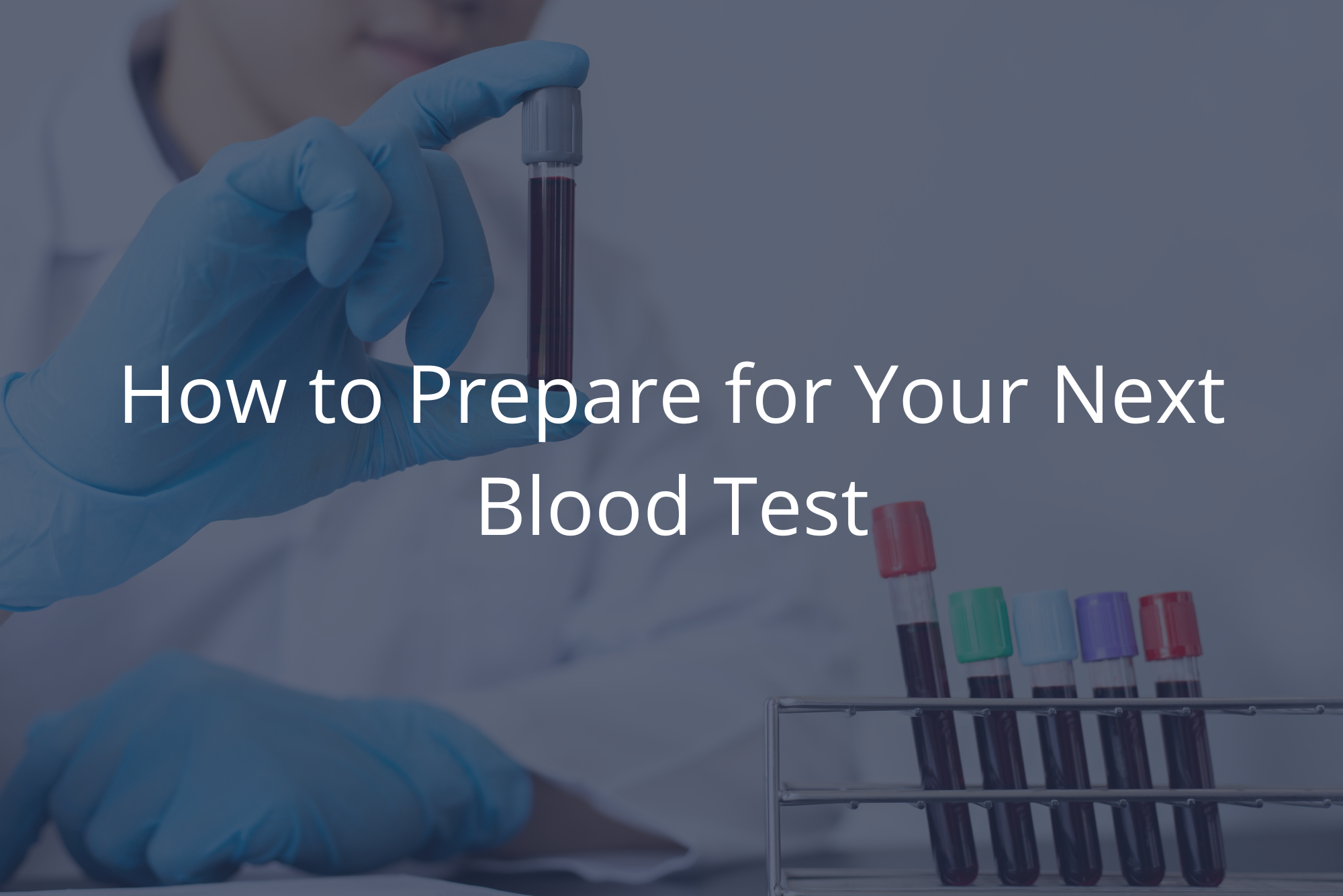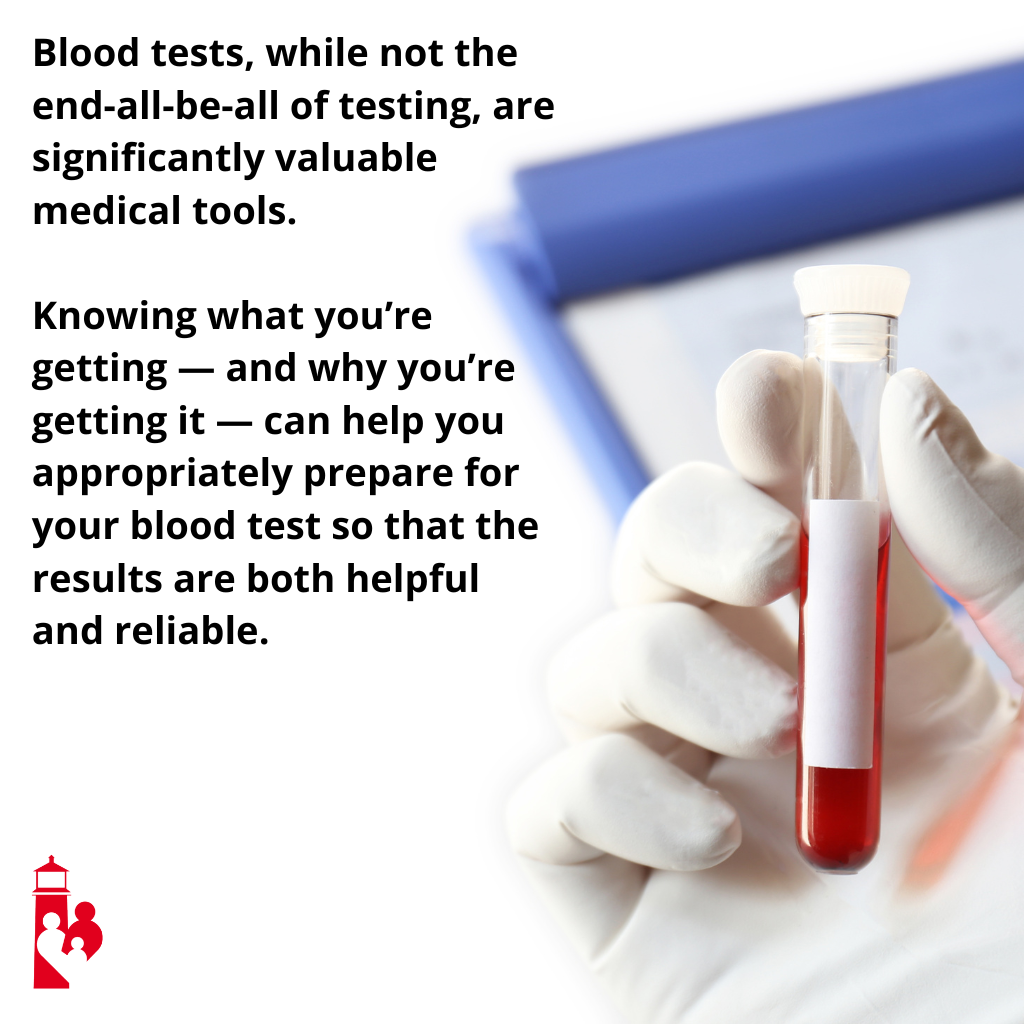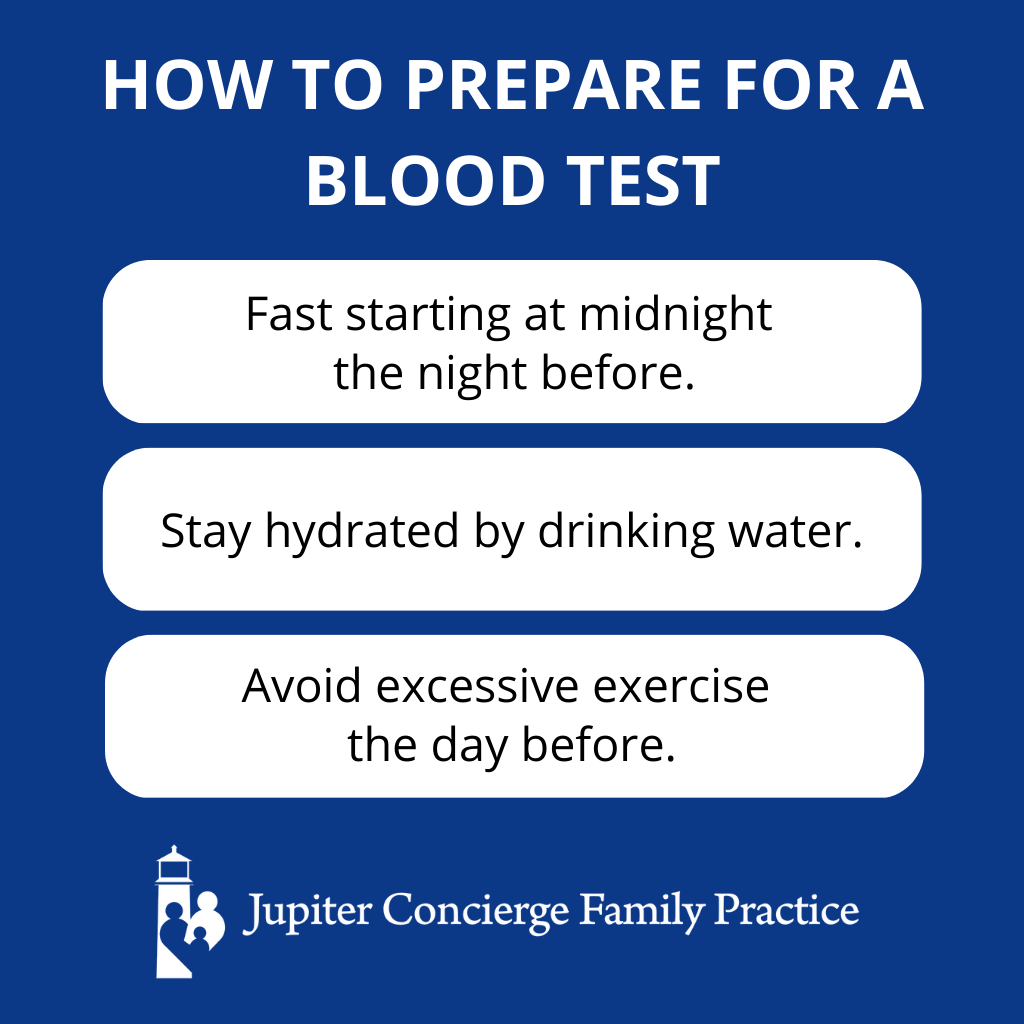
Modern medicine offers many glimpses into the human body’s real-time physiology, thanks to various tests. Arguably, one of the most common of those tests is a blood panel.
Today, we’ll review common blood tests, how best to prepare for them, and how to ensure accurate results.
The Importance of Regular Blood Tests
Routine blood work should be done annually for most people, and a great time for a blood test is during your comprehensive physical exam.
Below are some of the baseline, routine blood tests you should be having:
- Complete blood count (CBC): Checks for anemia and blood abnormalities
- Comprehensive metabolic panel (CMP): Looks at the kidney, the liver, electrolytes, and blood sugar
- Lipid panel: Gauges risk of heart disease
- Thyroid test: Specifically, thyroid-stimulating hormone (TSH)
- Vitamin D
- Prostate-specific antigen (PSA)
Staying on top of your blood work means your physician can spot any disturbing changes and compare them to the medically accepted ranges of “normal.” This is true in conventional and functional medicine.
That said, functional medicine looks more deeply at medical test results. We consider the timeline between “normal” and “disease” states and monitor each individual’s trends — not just whether they fall into “normal” ranges.
It’s worth noting that blood tests aren’t the only way we gather valuable health information; we also use urine, saliva, and stool tests.
How to Prepare for a Blood Test: Diet and Exercise
While not all blood tests require fasting, it’s a good idea to fast anyway — meaning nothing to eat or drink besides water after midnight the night before.
A fatty breakfast, for example, can temporarily raise triglycerides, giving your physician a false impression from your lipid panel. And a fasting glucose level provides specific information that needs to be unaffected by recent food consumption.
If you opt to fast, make sure you stay hydrated by drinking water. Otherwise, you could inadvertently impair your kidney analysis.
It’s also advisable to avoid excessive exercise the day before a blood test. While normal activity levels are fine, something extreme, like running a marathon, could alter your results. Creatine kinase (CK), an enzyme found in the muscles, is affected by intense exercise. Like the fatty meal/triglyceride example above, engaging in high levels of exercise the day before a blood panel can skew your results.
In general, don’t make any changes to your diet or exercise routine the week before your blood test. It won’t necessarily make your results appear better — more likely than not, you’ll just increase your chance of injury and alter your biochemistry in an abnormal way.
How to Prepare for a Blood Test: Logistics and Tips
Now that you know how to prepare for a blood test physically, let’s consider what you can do behind-the-scenes to help create an optimal experience.
1. Know what your blood tests are for. Each blood test is different, and there can be many reasons for ordering a test. A test should be done only IF it’s going to change what your doctor recommends for your lifestyle. In other words, it has to come with an action step.
2. Check for duplication of testing. Make sure the tests you’re getting aren’t duplicating other tests you already received through another doctor. It’s possible that insurance won’t cover duplicative testing, sticking you with the bill. That’s not to say a test that isn’t covered isn’t worthwhile; rather, it’s a word of caution that, increasingly, the onus of payment for duplicates is being put on the patient.
3. Understand the risks and context of testing. Every test comes with a risk of a false positive, and some test results may lead to additional testing. Some testing may not be in your best interest, so be sure you understand the risks and implications before you consent.
When possible, ensure that your physician has previous similar lab results for comparison. This provides context and makes the interpretation of the new test results more valid.
How to Prepare for a Blood Test: Final Thoughts
Blood tests, while not the end-all-be-all of testing, are significantly valuable medical tools. Knowing what you’re getting — and why you’re getting it — can help you appropriately prepare for your blood test so that the results are both helpful and reliable.


Dr. David Rosenberg
Dr. Rosenberg is a board-certified Family Physician. He received his medical degree from the University of Miami in 1988 and completed his residency in Family Medicine at The Washington Hospital in Washington, Pennsylvania in 1991. After practicing Emergency Medicine at Palm Beach Gardens Medical Center for two years, he started private practice in Jupiter, in 1993. He is an avid baseball fan and Beatles fanatic, since he was 8 years old. He has been married to his wife, Mary, since 1985 and has three grown children.
David completed additional studies at Mercer University, Macon, Georgia and obtained a BS in Chemistry in 1983.
“My interests include tennis, snow skiing, Pilates and self-development.”

